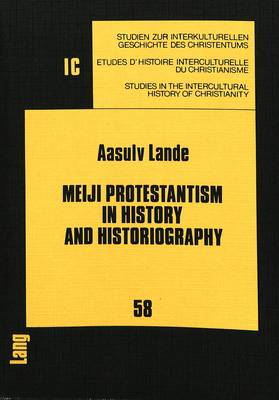Studia Missionalia Upsaliensia.
1 primary work
Book 46
The interpretation of the Meiji Protestant legacy remains a basic question of Japanese Church History, largely due to Japanese Christian self-criticism after the Pacific War. Through a comparative approach, the present study focuses on how the Meiji Protestant legacy is interpreted in Japanese and Western milieux from 1872 until 1945. In Japan, ecclesiastical, social and individualist interpretations emerge. The historical concern with Meiji Protestantism reaches a climax in the patriotic 1930s. The Western study of Meiji Protestant History, which up to 1909 focused on traditional tenets of mission history, continuity and expansion, thereafter gradually loses its vigour and turns into a general missiological interest. Post-War interpretative developments in Japan and in the West generally follow pre-War patterns. The emerging interpretative history is seen against its background in Japanese and Western ecclesiastical and social milieux.
